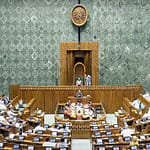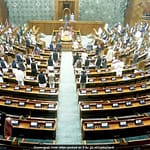Agra: As Union minority affairs minister Kiren Rijiju introduced the Waqf (Amendment) Bill, 2025, in Lok Sabha, Bihar governor Arif Mohammed Khan, who was in Mathura on Wednesday, expressed his support for the proposed legislation. He said the bill would ensure that the benefit of waqf properties reaches impoverished people “for which these properties were intended,” contrary to the present situation where “affluent individuals have predominantly appropriated them.”
The bill to amend the legislation governing waqf boards proposes comprehensive changes to the 1995 Waqf Act, including ensuring Muslim women and non-Muslims representation in such bodies.
Khan, a former Union minister, was in Mathura to inaugurate two newly-renovated schools.
Talking to the media, Khan questioned the status of waqf properties in Mathura, asking, “how many properties are ‘waqf’, and how many charitable organisations operate on them?” Explaining the concept, he said ‘waqf’ means the original owner has dedicated the property to Allah, making Him the proprietor. “Who should have the primary right to use it?” he asked, stressing that waqf properties should benefit the most impoverished.
Discussing legal disputes over waqf properties, the Bihar governor said that “more than 90 % of these cases have spanned multiple generations.” Initially, the eldest son was appointed mutawalli (caretaker), but as families grew over 150 years, “today, 40-50 people are involved, with most of them feeling aggrieved.”
“Should these legal disputes go on forever while large properties remain unused for the poor?” he asked, adding that “powerful individuals had taken control of waqf properties, leaving the underprivileged with no benefits”.
According to its statement of objectives and reasons, the bill seeks to remove Section 40 of the current legislation, which relates to the board’s authority to determine if a property is a waqf property.










